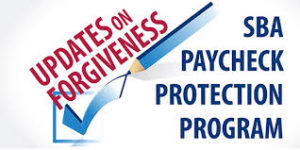Last week, on May 27, 2020 the House passed legislation, Paycheck Protection Program Flexibility Act, H.R. 7010, loosening the requirements for PPP loan forgiveness. Yesterday, the Senate, while not in full session, unanimously consented to the House version of the Paycheck Protection Program Flexibility Act. Basically, Congress made the CARES Act, a short-term fix a longer-term solution. This legislative loosening of burdensome and complex compliance greatly reduces the emotional and financial stresses of business owners allowing them to do what they do best, growing our economy.
What the bill does.
Extends the 8-week covered (spending) period to 24-weeks or December 31 whichever comes first;
Lowers the 75% floor for eligible payroll costs to 60% and increases the 25% ceiling for eligible non payroll costs to 40%;
Extends the deadline to recall and hire workers at normal wages from June 30 to December 31;
Extends the two-year repayment term to five;
Provides that borrowers who obtain SBA PPP loan forgiveness can also defer payment of employer payroll taxes (Social Security and Medicare);
Clarifies that a borrower doesn’t have to start repaying a loan until the SBA determines whether it can be forgiven; and,
Adds two new exceptions to loan forgiveness reduction: 1. Inability to find qualified employees to attain pre-pandemic workforce level and 2. Inability to get back to pre-pandemic conditions (at February 15, 2020) due to COVID-19 operating restrictions/compliance with public health and safety standards such as phased in re-openings and restructuring due to social distancing guidelines. We cannot overemphasize the importance of documentation.
Where we are at now.
The House language indicates that if borrowers do not meet the 60% payroll expenditure requirement, 0% of the loan will be forgiven. A co-sponsor has stated that this was not the intent. Last week Senate Small Business Chairman, Marco Rubio stated his concern that the House passed legislation would “create new and serious burdens for PPP borrowers in terms of forgiveness.” We can expect technical corrections to remedy this “cliff effect”.
Despite bipartisan disdain the legislation DID NOT overturn the non-deductibility of expenses funded with forgiven loan proceeds. So, IRS Notice 2020-32, Payment Of Expenses That Result In PPP Loan Forgiveness Are Not Deductible. Seriously, what were they thinking. This was an opportune time to alleviate a critical concern.
The rule changes are of great benefit across the board. In our opinion, first and foremost, this provides a solid scenario for business to resume budgeting and forecasting and it immediately enables improved cash flow and payables management. Pushing out the repayment terms will help those businesses who may not immediately see adverse effects or who are unable to “get back on their feet” within two years.
IOO, extending the rehire date to December 31 now enables employers to recall and hire workers proportionately to geographic reopening phases and as their own business returns to normalcy whether that normalcy be the old or new. It increases the probability that employees brought back to work stay at work at normal rates of pay. It provides businesses with more flexible spending especially those with high per square foot rent costs especially now that social distancing will decrease per square foot revenues. It may even help businesses struggling with commercial rent payments and who have not benefited from eviction moratoriums. This is a huge boost for those businesses not yet reopening or barely reopening: gyms, caterers, museums, entertainment complexes, and bars.
Since the legislation was designed to merely enhance existing legislation it does not help businesses with large inventories or high overhead expenses such as insurance.
We anticipate there will soon be clarification that June 30, 2020 remains the deadline for PPP loan application and that in no way was the Paycheck Protection Program Flexibility Act, a reauthorization of the PPP program through December 31, 2020.
COVID-19 Disclaimer. Laws and regulations have quickly changed and will continue to change in order to mitigate the economic damage caused by the Coronavirus Crisis. New laws and regulations are being passed quicker than the legislative process has taken in the past. Guidance, clarifications, and interpretations are constantly evolving. Deadlines and due dates are being extended and re-extended. New relief and programs are constantly rising up. This is occurring on all levels: Federal, State, and Local. Information we publish may not be updated after initial publication/dissemination. We are committed to giving you the best answer possible based on what we know at the time your question is asked.
